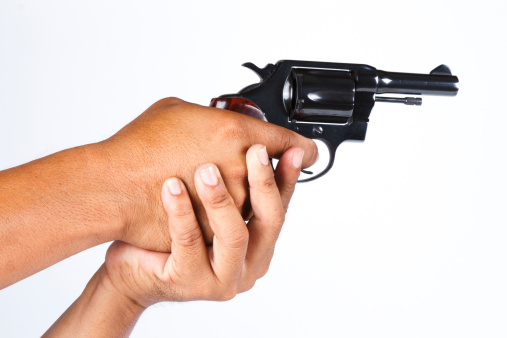
Gun owners who have been convicted of driving under the influence are more than four times as likely to be later arrested for a firearm-related or violent crime, according to a new study.
People who had one driving under the influence conviction before purchasing a handgun in California were 4.2 times as likely as those with no prior criminal record to later be arrested for a firearm-related or violent crime, and 3.8 times as likely to be arrested for murder, rape, robbery or aggravated assault, reports the study, published Jan. 30 in the peer-reviewed journal Injury Prevention.
“The increase in risk was large and independent of other well-known risk factors for future violence,” said Garen Wintemute, professor of emergency medicine and director of the UC Davis Violence Prevention Research Program, which conducted the study. “This suggests that prior convictions for alcohol-related crime may be an important predictor of risk for future criminal activity among firearm owners.”
The research may help lawmakers who are working to reduce gun violence by limiting firearm access for those who are at high risk of committing violent crimes.
“Understanding risk factors for violence is obviously of interest in a population that by definition has universal access to firearms,” Wintemute said.
Previous studies have shown a link between alcohol abuse and an increased risk for suicide, homicide and other forms of violence using firearms, but the UC Davis study is the first to associate alcohol misuse and future criminal activity among legal firearm owners, according to the research program.
Prior DUI or alcohol-related convictions were a stronger predictor of increased risk of violent crime than other risk factors, such as being younger, male or having a prior history of violence, the study found.
Researchers used data originally published in 1998 that assessed prior criminal activity as a predictor of future violence among handgun purchasers, but conducted a secondary analysis.
The scientists studied a random sample of 4,066 people under age 50 who purchased a handgun from a licensed retailer in California in 1977.
Using criminal records from the California Department of Justice, the researchers identified people who had prior convictions for DUI and other alcohol-related crimes and compared them with purchasers who had no criminal history.
By 1991, 32.8 percent of those with prior alcohol-related convictions and 5.7 percent of those with no prior criminal history were arrested for a violent or firearm-related crime. Nearly 16 percent of those with prior alcohol-related convictions and 2.7 percent of those with no prior criminal history were arrested for murder, rape, robbery or aggravated assault.
Funding for the research came from the New Venture Fund and the California Wellness Foundation.





